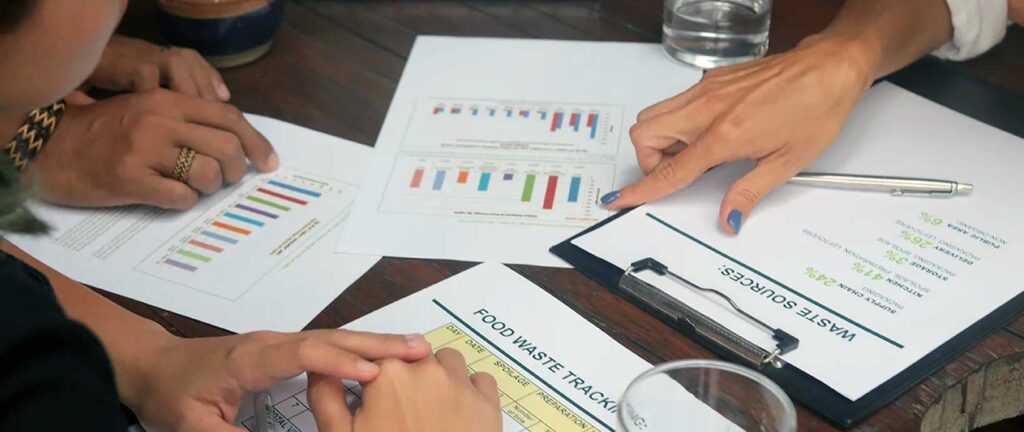Eating in Bali: The Hidden Environmental Costs
While the success of cafes and restaurants in Bali has greatly contributed to its appeal, the rapid growth of the restaurant industry is a pressing environtmental concern that raises questions. In pursuit of quick profit, the industry turns a blind eye to the long-term impact.
RESTAURANTS ARE A PART OF A TOURIST PRODUCT
Tourism mainly relies on natural and cultural attractions. In this sense, Bali stands a bit apart as a destination. On top of stunning natural beauty and vibrant culture you will hardly find such a concentration of well-designed cafes, instagrammable coffee shops and restaurants at any other tropical shore in the world.
“Tourists enjoy eating out and getting food delivered to their homes which made the restaurant industry in Bali a part of a tourist product. However, being a subsystem of tourism, restaurants must ensure they don’t harm the island”.
The data from Badan Pusat Statistik Provinsi Bali shows that the number of restaurants registered in Bali is growing every year. Like any other large-scale industry, restaurants reshape the environment in which they operate. At first glance, the impact looks positive. The restaurant industry is one of major employers in Bali, providing jobs, income opportunities and supporting the livelihoods of thousands of Balinese. Restaurants serve as platforms for cultural exchange. They introduce people to different cuisines and promote diversity. Restaurants generate substantial revenue and pay taxes at various levels, contributing to the local economy. The presence of restaurants also impacts real estate in Bali, since areas with a thriving restaurant scene can attract more residents, leading to increased property values.
LOOK BEHIND THE SCENES
However, the environmental impact of the restaurant industry in Bali is far from being good. Restaurants are significant generators of food waste, from in-kitchen scraps to uneaten customers’ meals, all kinds of packaging and single-use plastics. Restaurants consume a lot of gas for cooking, electricity for lighting and cooling, as well as water for drinking, cooking and sanitation. Despite many restaurants doing their best to source local ingredients, they barely verify farmers and producers on sustainable practices. Since Bali’s culinary scene spans a wide range of cuisines, some restaurants purchase ingredients from far and wide disregarding related emissions. Wide spread food delivery services from restaurants also raises concerns about air pollution caused by transportation.
“It’s crucial to recognize that the growth of the industry brings with it an increased volume of trash, and responsible waste management emerges as the number one area that demands immediate attention”.
By working with the industry in Bali as a sustainability consultant I estimate that on average one cafe in Canggu produces 2 tons of organic waste and up to 1 ton of non-organic waste per year. Meanwhile, 7 out of 10 cafes don’t even sort food waste from plastics. Is anyone questioning where all this mixed trash from restaurants goes to?
TOMORROW NEVER COMES
In October 2023, the largest Bali’s landfill site Suwung TPA was engulfed by massive fire spreading suffocating smell and toxic smoke all around the South of the island putting in danger not only the environment but the health of Suwung community. The sobering point is the landfills problem requires an urgent response from everyone, including restaurant businesses that contribute to multiplying of dangerous landfills by ignoring conscious waste management like tomorrow never comes.
“Not care much about tomorrow and focus on “now” is sort of a part of Bali life. But if it goes beyond spirituality, what can this mindset lead to?”
In light of the Bali waste crisis, limited capacity and terrific environmental and social impact of landfills, that’s the best moment for restaurants to make a shift towards more sustainable operations.
CROSSROAD OF BUSINESS AND PLANET
Many restaurants’ owners don’t consider sustainability as a moral imperative. The restaurant industry often voices concerns about the lack of waste management infrastructure in Bali and doesn’t want to proactively embrace positive changes without external obligations. Restaurants’ owners often point out a misconception that sustainability requires extra costs that is why it is not beneficial for business.
“While it’s true that eco-friendly packaging and recycling may require additional investments for restaurants, it’s vital to recognize that a sustainable approach to business is all about a balance”.
Look at this. By focusing on waste prevention practices, restaurants can minimize the volume of waste to manage as well as reduce the frequency and price for pick up services. By allocating resources to enhance recycling practices, restaurants can achieve cost savings in the long run when it comes to water and energy efficiency. Restaurants have an opportunity to expand eco-friendly practices, such as green packaging and transparency of supply chains, and fairly charge higher prices for higher quality. Creative and environmentally responsible business enhances reliability and a brand reputation that attracts more customers and generates revenue.
HOW IT WORKS
Let me introduce you to one of our clients, a restaurant that made a conscious shift towards waste prevention methods. The impact was not only environmentally responsible but also cost-effective. By thoroughly monitoring their waste, this client transitioned from mixed waste collection services to a separate collection system. Initially, they had waste pickups scheduled seven times a week, incurring monthly costs of 1,500,000 IDR. With their commitment to waste prevention, they now enjoy waste pickups just four times a week, reducing their monthly expenses to a mere 800,000 IDR. This success story underscores the immense potential of preventive practices in business – they demand relatively low effort and investment, yet offer remarkable cost savings.
Another of our clients opted to invest a bit more by choosing compostable takeaway packaging at 1,200,000 IDR per month, up from 900,000 IDR. In a parallel move towards sustainability, they stopped using bottled water, embracing water filters instead. This switch not only reduced plastic waste but also saved them a significant 40,000,000 IDR in total annually.
Introducing a nominal charge for takeaway coffee cups can be another win-win strategy for both businesses and the environment. Extra payment can motivate half of the clients to have their coffee in a cafe rather than grab it for takeaway, also contributing to waste reduction. With this additional revenue, restaurants can afford higher-quality, more eco-friendly cups, even if some still find their way to landfills. This approach minimizes environmental risks associated with disposable cups and underlines the cafe’s commitment to sustainability.
Commitment to sustainability can become a core of the business that attracts customers. Probably one of the most famous sustainable venues in Bali, Desa Potato Head, has built their brand around sustainability, and I’ve never heard them struggling with clients. And you?
“The concept of sustainability requires a new habit creation and a “can-do” attitude to challenges that focuses on finding solutions and possibilities rather than dwelling on limitations or obstacles”.
LEAD BY EXAMPLE
Waiting for external forces, whether it’s the government, NGO’s or other parties, to create a flawless system may result in missed opportunities for improvement. Delay may result in local environmental disaster. Today, restaurants can initiate responsibility by utilizing the available tools, even if they are not perfect, and recognize that perfection is secondary for taking meaningful actions.
Any change starts with the decision to do so. Thus, the right leadership is essential, as well-known brands can lead the entire industry by example.
“Just as avocado toast has become a must have on Bali cafe menus, focus on sustainable operations can gain momentum and become another trend to follow”.
Ultimately, the success of Bali’s restaurant industry and its contribution to the local economy should not come at the expense of the island’s fragile ecosystem. Being environmentally friendly for restaurants is not merely a responsibility; it is a tool of resilience and an opportunity to nurture the very essence of Bali. It is also a chance to promote Bali’s image as a destination where the thriving restaurant scene, nature and culture coexist in perfect harmony.





